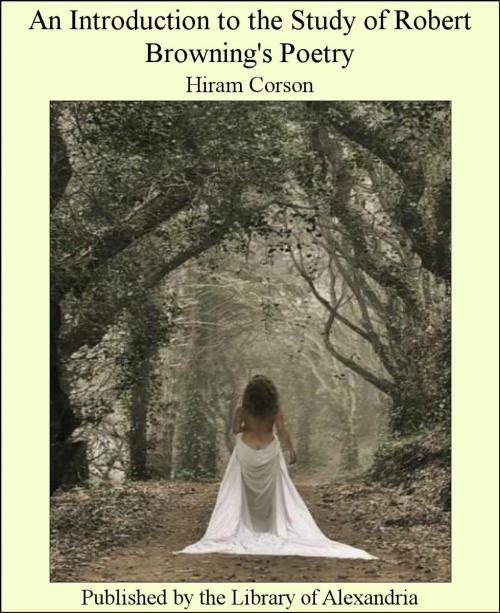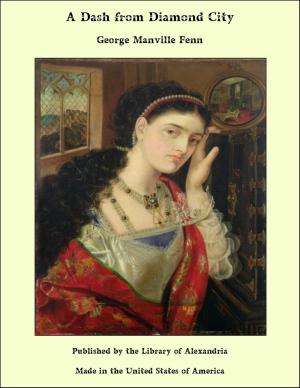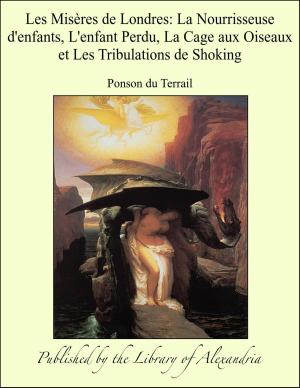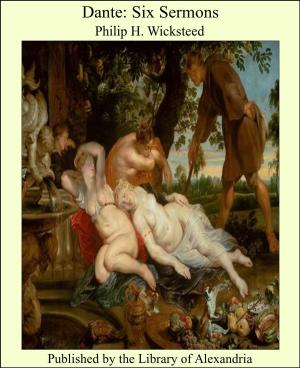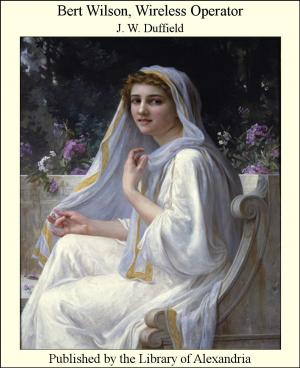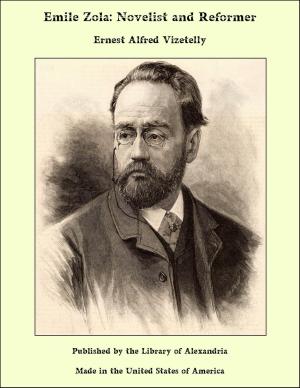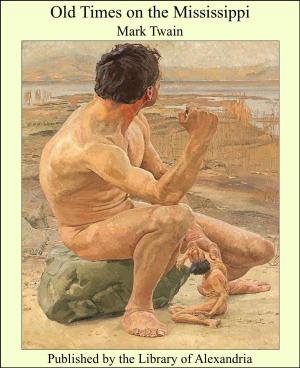An Introduction to the Study of Robert Browning's Poetry
Nonfiction, Religion & Spirituality, New Age, History, Fiction & Literature| Author: | Hiram Corson | ISBN: | 9781465526168 |
| Publisher: | Library of Alexandria | Publication: | March 8, 2015 |
| Imprint: | Language: | English |
| Author: | Hiram Corson |
| ISBN: | 9781465526168 |
| Publisher: | Library of Alexandria |
| Publication: | March 8, 2015 |
| Imprint: | |
| Language: | English |
My dear Dr. Corson, I waited some days after the arrival of your Book and Letter, thinking I might be able to say more of my sense of your goodness: but I can do no more now than a week ago. You "hope I shall not find too much to disapprove of": what I ought to protest against, is "a load to sink a navy—too much honor": how can I put aside your generosity, as if cold justice—however befitting myself— would be in better agreement with your nature? Let it remain as an assurance to younger poets that, after fifty years' work unattended by any conspicuous recognition, an over-payment may be made, if there be such another munificent appreciator as I have been privileged to find, in which case let them, even if more deserving, be equally grateful. I have not observed anything in need of correction in the notes. The "little Tablet" was a famous "Last Supper", mentioned by Vasari, (page. 232), and gone astray long ago from the Church of S. Spirito: it turned up, according to report, in some obscure corner, while I was in Florence, and was at once acquired by a stranger. I saw it, genuine or no, a work of great beauty. (Page 156.) "A canon", in music, is a piece wherein the subject is repeated— in various keys: and being strictly obeyed in the repetition, becomes the "Canon"—the imperative law—to what follows. Fifty of such parts would be indeed a notable peal: to manage three is enough of an achievement for a good musician. And now,—here is Christmas: all my best wishes go to you and Mrs Corson. Those of my sister also. She was indeed suffering from grave indisposition in the summer, but is happily recovered. I could not venture, under the circumstances, to expose her convalescence to the accidents of foreign travel: hence our contenting ourselves with Wales rather than Italy. Shall you be again induced to visit us? Present or absent, you will remember me always, I trust, as Yours most affectionately, Robert Browning. "Quanta subtilitate ipsa corda hominum reserat, intimos mentis recessus explorat, varios animi motus perscrutatur. Quod ad tragoediam antiquiorem attinet, interpretatus est, uti nostis omnes, non modo Aeschylum quo nemo sublimior, sed etiam Euripidem quo nemo humanior; quo fit ut etiam illos qui Graece nesciunt, misericordia tangat Alcestis, terrore tangat Hercules. Recentiora argumenta tragica cum lyrico quodam scribendi genere coniunxit, duas Musas et Melpomenen et Euterpen simul veneratus. Musicae miracula quis dignius cecinit? Pictoris Florentini sine fraude vitam quasi inter crepuscula vesperascentem coloribus quam vividis depinxit. Vesperi quotiens, dum foco adsidemus, hoc iubente resurgit Italia. Vesperi nuper, dum huius idyllia forte meditabar, Cami inter arundines mihi videbar vocem magnam audire clamantis, Pao` me/gas ou' te/qnhken. Vivit adhuc Pan ipse, cum Marathonis memoria et Pheidippidis velocitate immortali consociatus." —Eulogium pronounced by Mr. J. E. Sandys, Public Orator at the University of Cambridge, on presenting Mr. Browning for the honorary degree of Doctor of Laws, June 10, 1879
My dear Dr. Corson, I waited some days after the arrival of your Book and Letter, thinking I might be able to say more of my sense of your goodness: but I can do no more now than a week ago. You "hope I shall not find too much to disapprove of": what I ought to protest against, is "a load to sink a navy—too much honor": how can I put aside your generosity, as if cold justice—however befitting myself— would be in better agreement with your nature? Let it remain as an assurance to younger poets that, after fifty years' work unattended by any conspicuous recognition, an over-payment may be made, if there be such another munificent appreciator as I have been privileged to find, in which case let them, even if more deserving, be equally grateful. I have not observed anything in need of correction in the notes. The "little Tablet" was a famous "Last Supper", mentioned by Vasari, (page. 232), and gone astray long ago from the Church of S. Spirito: it turned up, according to report, in some obscure corner, while I was in Florence, and was at once acquired by a stranger. I saw it, genuine or no, a work of great beauty. (Page 156.) "A canon", in music, is a piece wherein the subject is repeated— in various keys: and being strictly obeyed in the repetition, becomes the "Canon"—the imperative law—to what follows. Fifty of such parts would be indeed a notable peal: to manage three is enough of an achievement for a good musician. And now,—here is Christmas: all my best wishes go to you and Mrs Corson. Those of my sister also. She was indeed suffering from grave indisposition in the summer, but is happily recovered. I could not venture, under the circumstances, to expose her convalescence to the accidents of foreign travel: hence our contenting ourselves with Wales rather than Italy. Shall you be again induced to visit us? Present or absent, you will remember me always, I trust, as Yours most affectionately, Robert Browning. "Quanta subtilitate ipsa corda hominum reserat, intimos mentis recessus explorat, varios animi motus perscrutatur. Quod ad tragoediam antiquiorem attinet, interpretatus est, uti nostis omnes, non modo Aeschylum quo nemo sublimior, sed etiam Euripidem quo nemo humanior; quo fit ut etiam illos qui Graece nesciunt, misericordia tangat Alcestis, terrore tangat Hercules. Recentiora argumenta tragica cum lyrico quodam scribendi genere coniunxit, duas Musas et Melpomenen et Euterpen simul veneratus. Musicae miracula quis dignius cecinit? Pictoris Florentini sine fraude vitam quasi inter crepuscula vesperascentem coloribus quam vividis depinxit. Vesperi quotiens, dum foco adsidemus, hoc iubente resurgit Italia. Vesperi nuper, dum huius idyllia forte meditabar, Cami inter arundines mihi videbar vocem magnam audire clamantis, Pao` me/gas ou' te/qnhken. Vivit adhuc Pan ipse, cum Marathonis memoria et Pheidippidis velocitate immortali consociatus." —Eulogium pronounced by Mr. J. E. Sandys, Public Orator at the University of Cambridge, on presenting Mr. Browning for the honorary degree of Doctor of Laws, June 10, 1879
